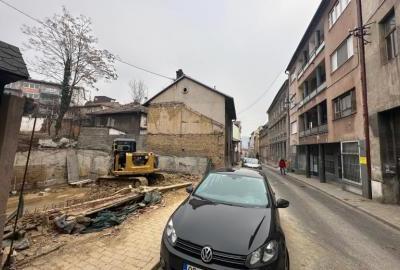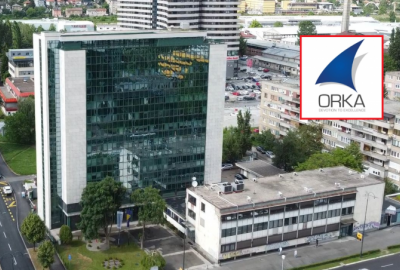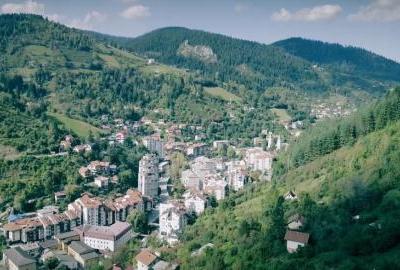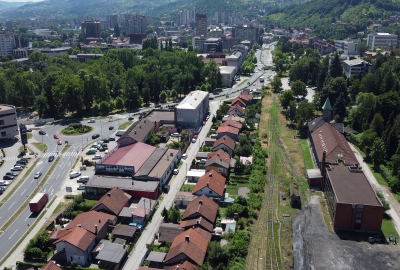Žurnal in English
EPILOGUE OF THE GREAT HEIST: Workers and Shareholders of Trgovina Borac Can Forget About Their Stolen Property
Hundreds of business premises were enough to make Trgovina Borac a target even before the plundering privatisation orchestrated and carried out by the political parties SDA and HDZ BiH. For this company, it all began in 1999 with the sale of its first properties, which are recorded in the so-called passive sub-balance.
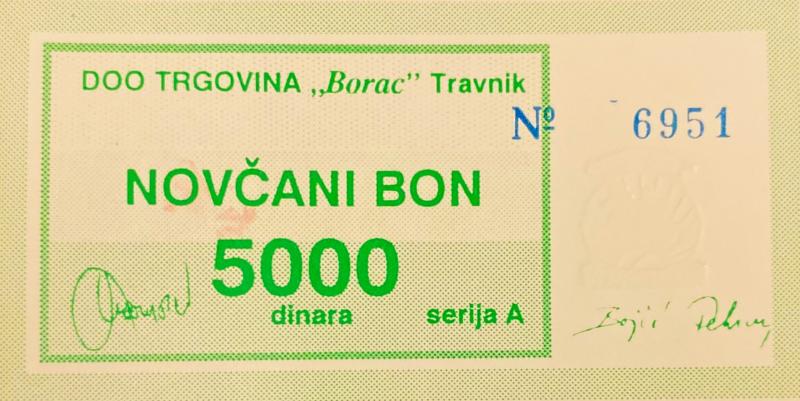
From a company that once employed over 1,600 workers and owned around 350 properties across the former Yugoslavia, there is now no trace left. Nothing remains that could even be photographed as evidence of Trgovina Borac Travnik’s existence.
"In the Register of Issuers, the issuer Open Joint Stock Company Trgovina 'BORAC' Travnik is deleted", announced the Federation of Bosnia and Herzegovina Securities Commission in April of this year.
At the same time, two months earlier, a new company, “Trgovina Borac 23", was registered for activities related to “renting and managing owned properties".

The management includes the same figures as two decades ago when the large-scale asset seizure began: Fehim Bojić and Mijo Marušić. We must not forget the third figure from that period, Nijaz Đulabić, who, as Chairman of the Supervisory Board, was an active participant in the unlawful actions along with the aforementioned duo.
IT’S NOT ALL ABOUT MONEY; SOME OF IT IS IN REAL ESTATE
Hundreds of commercial properties were enough reason for Trgovina Borac to become a target even before the predatory privatisation orchestrated and implemented by SDA and HDZ BiH. For this company, it began in 1999, with the sale of its first properties—recorded in the so-called passive sub-balance.
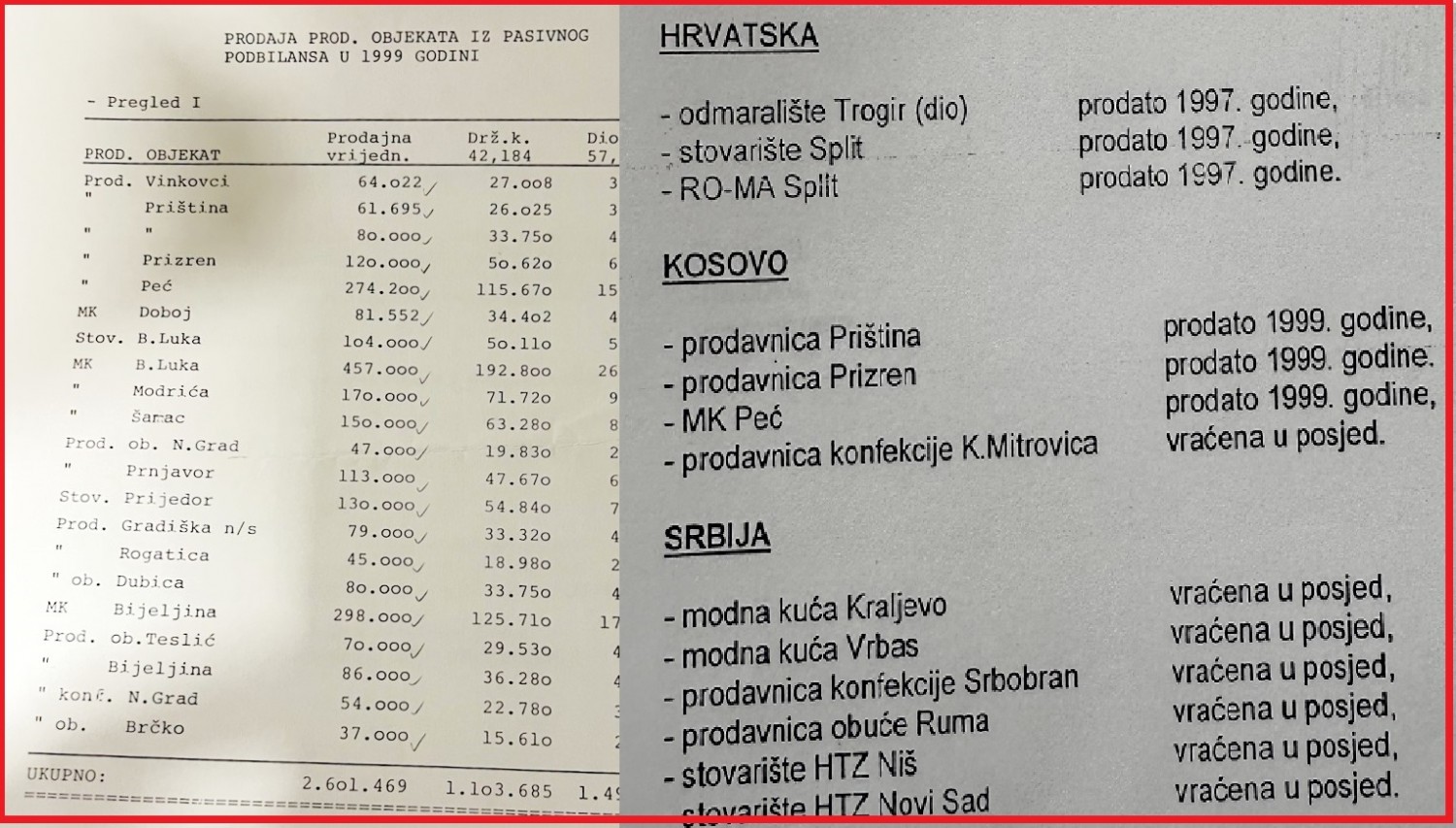
"We, representatives of the workers and shareholders, have been knocking on the doors of various municipal, cantonal, federal, and state institutions for months, writing to the police, courts, prosecutors, politicians, parliamentary clubs, the OHR, and media, informing them about the crime and theft of our property. In a company that employed 1,650 people before the war, there are currently around twenty employees and two irreplaceable directors who have so far sold, gifted, or mortgaged at least 100 out of 355 business premises".
This is what the company’s workers wrote in 2003, providing additional details in a statement for Slobodna Bosna.
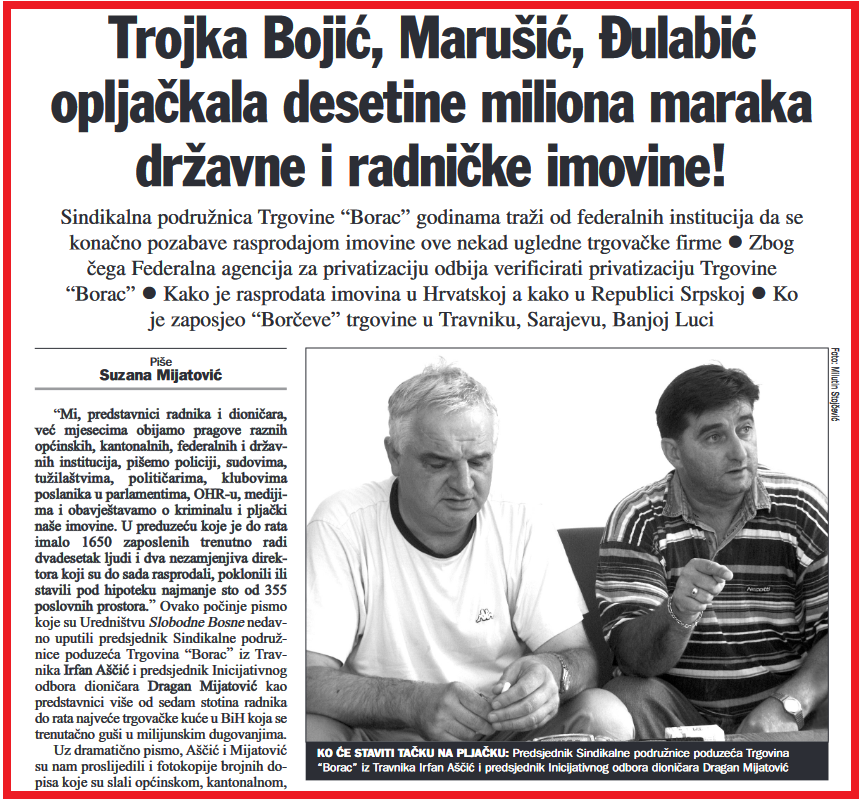
Directors Bojić and Marušić at the time denied the workers' claims. Then, more than a thousand small shareholders, who acquired shares through the so-called "Marković privatisation", tried filing a complaint against the Federation of BiH with the Human Rights Chamber of BiH. It was all in vain.
WHERE DID THE PEOPLE GO?
The fact that the workers, as small shareholders, held over 50% ownership didn’t help them in the course of events. They lost their jobs and were forced to sell shares below market value just to survive. It all took place “off the books", leaving no trace of either the sellers or, especially, the buyers.
These buyers decided in 2004 that it was time to take over the company and all its assets. The First Founding Shareholders' Assembly was convened, a pivotal and contested point for everything that followed. It turned out that over a thousand shareholders had “disappeared", whose votes could have been crucial in choosing the management and directing the company’s future. The excuse given was that they couldn’t be found!
Nijaz Đulabić was elected as Chairman of the Supervisory Board, Fehim Bojić became director, and Mijo Marušić took on the role of financial director. Hasan Ćelam, who became head of the Securities Commission that year, joined the Audit Committee, and his role would prove critically important for the (il)legality of Trgovina Borac Travnik’s operations.
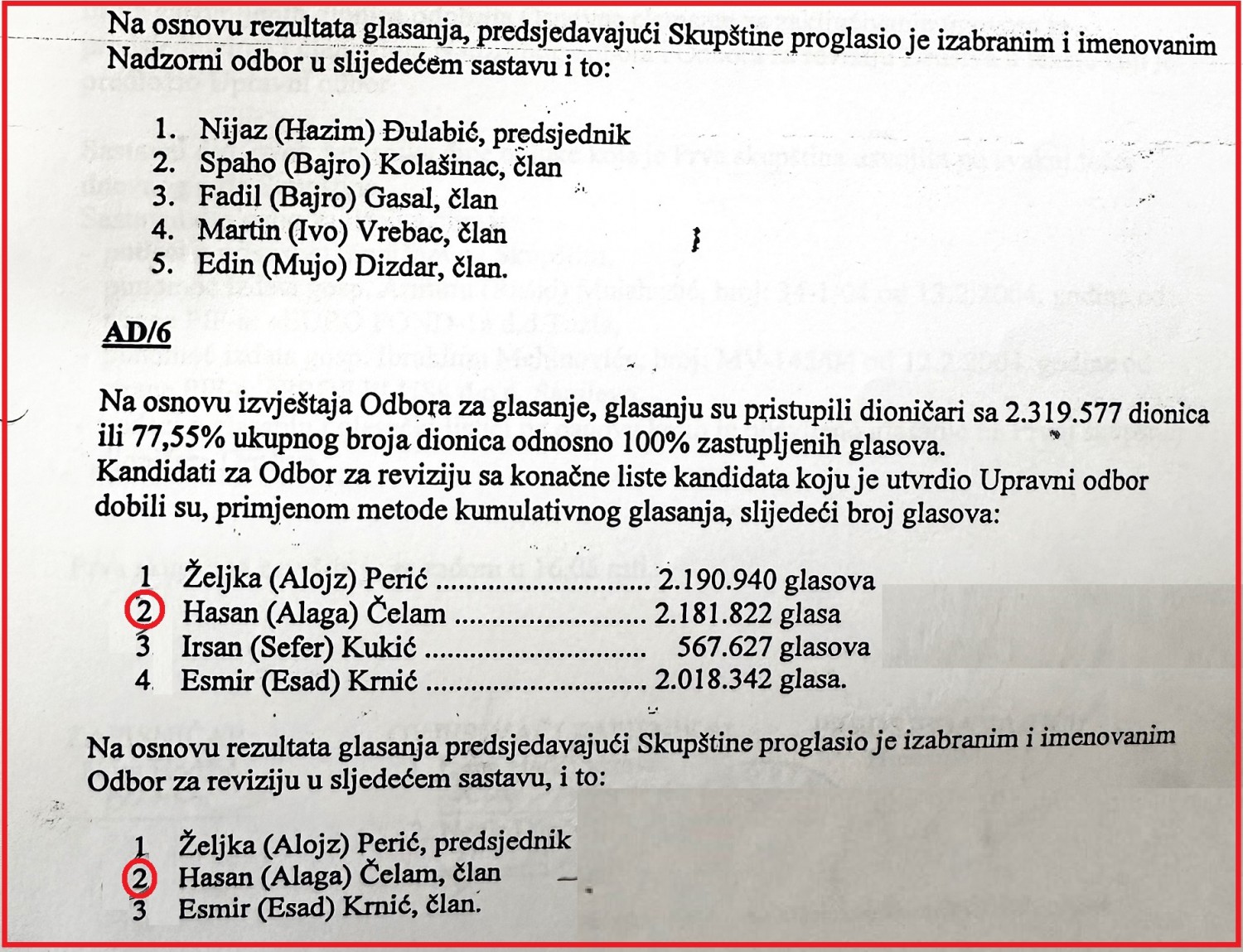
Since then, and for years afterwards, regular Assembly meetings were held, even though the workers, as small shareholders, initiated legal proceedings to annul the decisions due to its illegal activity. Even the Federal privatisation Agency’s demand to align shareholder lists, essential for entry into the Securities Registry, was in vain. Then-director Miroslav Džidić remained consistent and did not allow Trgovina Borac’s entry into the registry.
That’s when Ćelam steps in. Džidić is dismissed, Marina Orlando takes over, and, as is typical for SDA-HDZ appointees, they establish a good working relationship, leading to Trgovina Borac’s entry into the Register. This effectively legalised all the previous plundering.
WHAT ROBBERY?
To whom and for how much the management sold the business premises and properties owned by Trgovina Borac remains unknown. Tens of millions were in circulation, and perhaps even more. What is known is that the company, which started with 37 million in capital, "fell" to 10 million.
Had they wanted to, but didn’t, the prosecutors of the Central Bosnia Canton Prosecutor's Office could have easily met at least a three-year quota with just this case. They could have checked the property listed in available records if the Directorate for the passive sub-balance wasn’t willing to present it publicly.
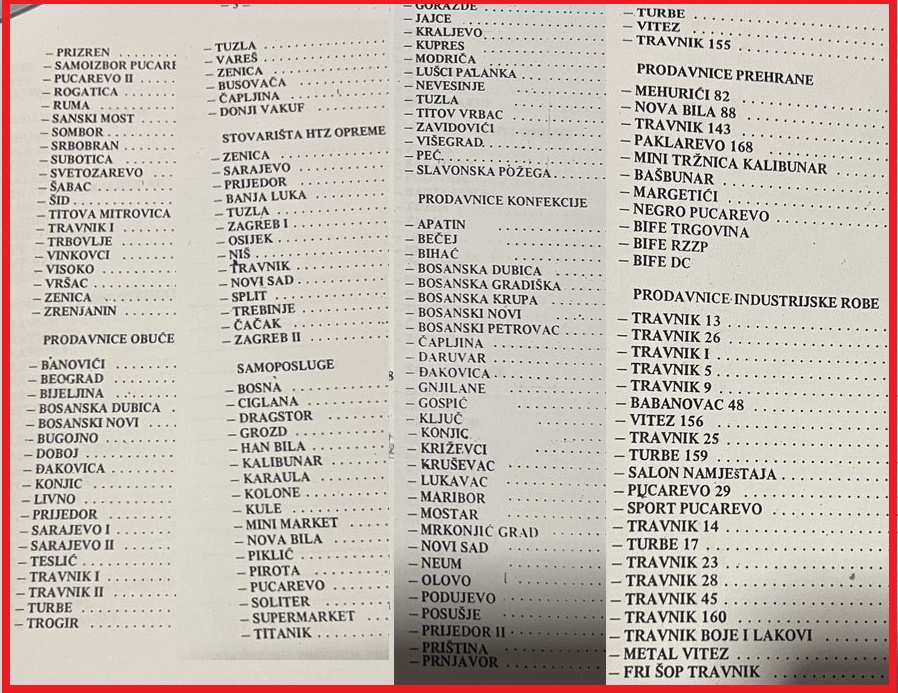
Žurnal spoke with several former workers and shareholders, but none were willing to speak publicly. Some say they are tired of seeking justice, while others have different reasons. The management of "Trgovina Borac", now "Trgovina Borac 23", was also contacted. Director Fehim Bojić was on sick leave, and the secretary confirmed that the request for an interview and our contact had been forwarded to the executive director, Mijo Marušić. We waited for two full working weeks, but no response came.
"We are afraid of the people behind all of this", some of them will say.
It should be remembered that the properties of "Trgovina Borac", particularly in Republika Srpska, especially in Banja Luka, were the subject of intense political battles, where Milorad Dodik played the role of "arbitrator". The dispute between the tycoons over ownership of these assets had turbulent developments, to the point where even the then-judge of the Constitutional Court, Krstan Simić, lost his position over it.
Hasan Ćelam also lost his position, though for an entirely different story, about which Žurnal wrote long before the Sarajevo prosecutor's office launched an investigation.
To be realistic, Ćelam is a minor figure compared to other actors who profited immensely from the fire sale of the Travnik company. A similar fate befell the employees of the parent company, "Konfekcija Borac". The company, which was valued at 35 million BAM in 2003 and employed 2,300 workers, was bought by the late director Mehmed Čorhodžić and his business partners, mostly SDA affiliates. The price for 67 percent of Borac's capital was two BAM!
The findings of the Financial Police revealed that part of the pre-war Borac’s property from the former Yugoslavia was not listed in either the active or passive sub-balance. There are no answers as to who sold and for how much the 25,000 m² of land, four business premises in Split, a resort and land in Trogir, five apartments in Zagreb, and 24 business premises in Serbia. No less questionable was the sale of Borac’s property in Bosnia and Herzegovina, such as the hotel in Babanovac or the Lipa Hotel in Travnik, with millions of BAM from the sales officially unaccounted for.
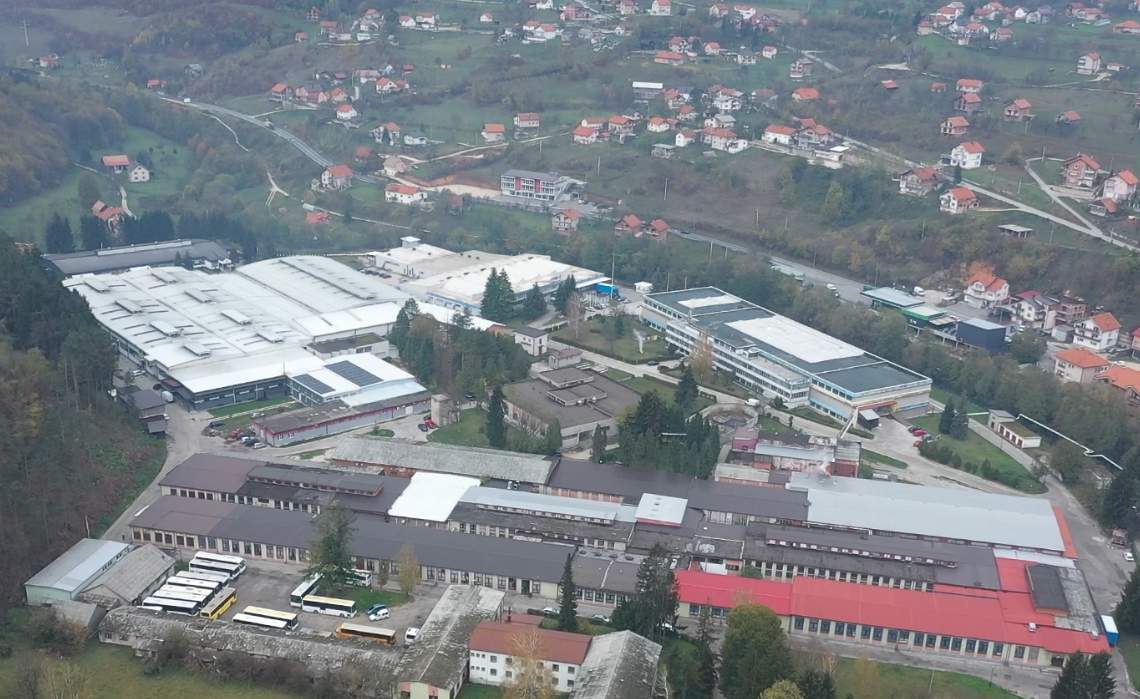
In the end, it was once again confirmed that there is no greater unity than what exists in the Central Bosnia Canton (SBK) between the SDA and HDZ, especially when it comes to "stripping" state assets. Let’s recall the example of the Bratstvo factory in Novi Travnik. During the war in Bosnia and Herzegovina, the city was divided into a Bosniak and a Croat part. The factory would suffer the same fate. After the start of privatisation, former directors became property owners, and what was once an industrial giant now mostly consists of abandoned and looted halls.
In this case, the most important thing was to protect all the actors from criminal liability. The consequences of this looting are only felt by the former workers. Trgovina Borac no longer exists. So, prosecutors, sleep peacefully...
(zurnal.info)





